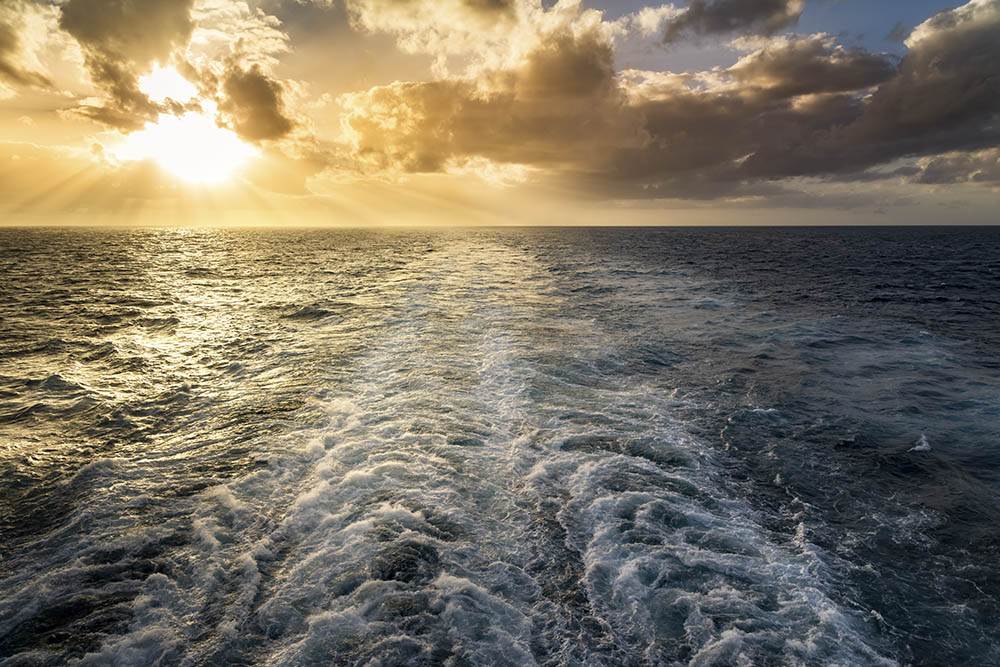It’s Mother’s Day today and Asian Heritage Month here in Canada.
I think it’s a good opportunity to show appreciation for our parents, grandparents and ancestors who have moved from China to places abroad.
Migration is difficult and it’s a complete gamble. The prosperous countries today might just be the ones facing strife and poverty next.
I just read a BBC article about how Venezuela was once a richer, more developed country than Colombia. What we see today is the opposite — Venezuela in crisis and people are leaving.
I knew a guy who did exactly that. He moved from Caracas to Toronto to go to school, but didn’t fare well. So, he pursued Spanish citizenship and moved there.
I met another Venezuelan, who is half-Chinese. He’s doing much better in Toronto, with better language skills and a decent job.
I imagine the reason why his paternal side moved from China to Venezuela was because of the opportunities that country offered.
And that was the gamble that all Chinese migrants have undertaken. We now have people like us in almost every part of the world even in Africa and South America because generations above ours have gambled.
I’m lucky
I’m one of the luckier ones. Being born into Singapore, that nation has seen an improvement of quality of life since its independence in 1965.
My mother told me about how the tides have changed in the Philippines. From a nation much more prosperous than Singapore in the ’60s, a period of bad government ruined it for everyone. The good thing about being Chinese in the Philippines is that they don’t suffer much discrimination unlike specific parts of Southeast Asia.
According to the Jamaica Gleaner, Jamaica and Singapore saw different outcomes after 50 years of independence. Excerpted below,
“We are not Singapore. And at this time of Independence celebrations, with the lamentations that we have not risen to their peak, nothing could be more indicative of the stark difference than the hue and cry about spending J$100 million (that is US$1 million!) on the celebrations. That princely sum is merely 16 times the per-capita gross domestic product (GDP) for Singaporeans, at US$61,700, the seventh-highest in the world, but it is 108 times the per-capita GDP for Jamaicans, at US$9,300.
Standing at the start of the decade of the 1960s, the colony Jamaica had far more advantages than colony Singapore. Jamaica, just under 11,000 square kilometres, had agriculture, bauxite, a growing tourism industry, budding manufacturing and services, and a settled, peaceful society.
Singapore, a group of small islands adding up to a mere 697 square kilometres, smaller than a Jamaican parish, was basically the main British naval base in East Asia and having the largest dry dock in the world then.”
If you looked at the world in 1965, your assessment of which countries would offer you the best outcome to be a bit different than if you made the same assessment today.
Gamble
I just think about some of the people I’ve interviewed and — to sound like a millennial — the struggle is real. I have more compassion for people who run restaurants these days knowing how they toil every day.
Migration is difficult.
Some of my sources’ parents have endured long periods of separation from their family. Others have had to do “snail mail dating.” Some of them had to take on significant debt and become an indentured labourer.
To think that our family members moved from China to a place that’s foreign to them just astounds me.
To think of how some of my interviewees moved from China to Trinidad and to Mexico… it’s astounding. There’s a language barrier, cultural barrier and severe racism in some cases.
And who knows? A country that we think is wealthy, stabled and developed can suddenly change course.
Chinese people aren’t all the same
We’re often seen as a unified block by less well-informed people.
We aren’t.
There are in fact a lot of divisions between the Chinese community, and I am not even talking about recent divisions.
When my grandparents moved to Malaya and Singapore, I am certain that language barriers posed a major roadblock in communicating between Chinese people.
Think about it: Southeast Asia was populated by Chinese people from Guangdong (which meant they spoke Hakka, Teochew and Cantonese), southern Fujian (which means they spoke Minnan/Hokkien) and less so from the Sanjiang (Jiangxi, Jiangsu and Zhejiang) and Hainan provinces.
You’ll notice this in Malaysia: you have Cantonese speaking cities and Hokkien speaking cities. In Singapore, my mother told me that Hokkien was the main lingua franca among Chinese people before a unified education system came in place post-independence.
To think that even though people are born to the same country but can’t communicate with each other is a bit hard to fathom.
So, you come to a country with your fellow compatriots. You celebrate the same cultural events as them. But you can’t really communicate with them.
Thanks for taking the gamble
Like I said, I have much to be appreciative for.
If my grandparents haven’t left China in the early 1900s, they would have gone through some of the worst events in China.
As with all migration, it’s tough. The fact that they mustered up the courage, gambling on the hope that things will get better, and then arriving in a foreign land where weather, people and government are completely different.
And it’s through the gambles they have made that we are where we are today.

Leave a Reply